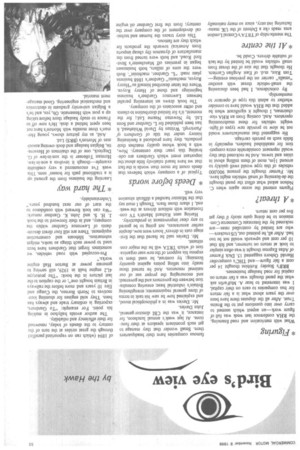* Deeds before words
Page 55

If you've noticed an error in this article please click here to report it so we can fix it.
Typical of a company which believes that deeds count for more than words is the fact that we have heard relatively little about the important event which Gardners are celebrating this year: their centenary. Now, with a book whose quality matches their products, they have produced a fascinating history under the title of Gardners of Patricroft. Written by David Whitehead, it has been published for L. Gardner and Sons Ltd. by Newman Neame Ltd.; for the moment, it's for litnited distribution to clients and other associates of the company.
The book draws an interesting parallel between Lawrence Gardner's business beginnings and those of Henry Royce. Where the latter described himself as "Henry Royce, mechanic" Gardner's 1868 business plate read: "L. Gardner, machinist". Both were the sons of millers, both businesses began in premises off Manchester's Stretford Road, and both were turned from the manufacture of dynamos (by cheap imports from America) towards the products for which they are famous.
This story traces the human and technical development of the company over the century; from the first Gardner oil 'engine of 1894 (which ran on vapourized paraffin) through the great strides at the turn of the century to the diesels of today, renowned for their efficiency and reliability.
The author avoids ballyhoo in making his point For example: "To Gardners, exporting is ordinary trade and always has been. They sold engines for shunting locomotives to North Borneo, the Congo and Eire 10 years and more before the railways in Britain bought one"; or the caption to the last picture in the book: "The prototype 4L2 engine built in 1929, still serving to generate power at Barton Hall engine works."
Pre-occupied with road vehicles, we sometimes forget that Gardners have been used to power such things as tanks, midget submarines, lifeboats and construction equipment. There are still four direct descendants of Lawrence Gardner within the company, and in their foreword to the book J. H. S. and John. K. Gardner remark: "We can look forward with confidence to the start of our next hundred years." Understandably,




























































































































































